 |
|
 |
2022
March
29
|
A song I hate
I've told you a lot about songs I like; today I'm going to tell you about one I despise.
Is it noisy and tuneless? Badly performed? Indecent or vulgar?
No, none of those things. It's worse.
A while back, someone suggested that I listen to the music of Alison Krauss.
I didn't recognize the name of the singer famous for an excellent
performance of The Wexford Carol
and thought it was a singer I had never heard of.
So I went to Spotify to see what songs she might have.
The one that was trending at the time — somewhat inexplicably —
was called "Whiskey Lullaby," a duet with Brad Paisley (whom I hadn't heard
of either).
That didn't sound appetizing, but I generally figure that if I'm going to dislike somebody,
I want to know as soon as possible, so I clicked on it.
And, after all, it might yet be worth something.
Loggins and Messina's "Whiskey" isn't about whiskey; maybe this one wouldn't be either.
I clicked "play."
Yecch. My first impression was that the song was narrating a suicide by gunshot.
On closer examination "pulled the trigger" might be a metaphor, and it's describing
a suicide by excessive drinking instead. Or rather two of them.
Woman rejects lover, lover drinks (or shoots) himself to death, woman does the same thing.
That's it. It's told in few words, with no elaboration, no story.
No character development, no plot structure, no chance of redemption,
not even any tragic irony. Just wallowing in pointless
misery. Why write a song about such a thing?
I came away positively nauseated.
You can read the lyrics here
or listen to the song here.
The former is less painful.
Permanent link to this entry


|
2022
March
27
|
LibreOffice for old word processor files

I recently consolidated some backups and wanted to read some word processor files that I wrote
as long ago as 1986. Microsoft Word will of course open its own files going back to its inception,
and it will open some files from later versions of Word Perfect. But not, strange to say,
Microsoft Windows Write (.wri) and Microsoft Works (.wps)! It does have an "extract text from any file"
opening option, for desperate cases, but the text may come out somewhat scrambled, and the layout is lost.
Several friends on Facebook recommended
LibreOffice, and I am glad to pass along
the recommendation. It works!
It successfully opens .wri, .wps, and most Word Perfect files. With Word Perfect prior to version 5, it has
occasional character-set problems, mostly omission of hyphens, but that's far better than scrambling or losing
the entire document. And of course with all of these there are infelicitous font substitutions — I've always
been something of a font geek, and I often used fonts that came with graphics packages and were not built into Windows.
But it's easy to convert everything into fonts I actually have.
I have used LibreOffice before, as a free substitute for Word; it's a good one, and it works under
Linux as well as Windows. Its preferred file format, .odt, is one Word can also open and edit.
And it seems to me that LibreOffice runs faster than Word. It keeps things a bit more simple
and straightforward.
What about LaTeX? Of course, I've been using it for longer documents since the 1980s, and it still works
just fine. It keeps gaining features but remains 100% compatible with what was there before. It's great
for long-term projects.
So far I haven't run into any of my Perfect Writer files from 1983-85 (yet!), but they are text files with a
markup code similar to LaTeX, so reading them will be no problem.
Next trick is to see if I can install Corel Draw 10 so I'll have a way to open old .cdr files,
of which there are many. Libre Office Draw actually tries to open them, but so far, I haven't seen it
recover all the contents successfully.
Permanent link to this entry


|
2022
March
23
|
Computer safety 101
(The Russians are coming!)
OK, folks, by popular demand, it's time for another short round-up on safe computing.
There are active threats of cyberwarfare from Russia.
Now is not the time let your guard down.
I'm going to package the information a little differently this time.
If I seem to be "talking down," it's because I want to reach the people who
really are being victimized.
If you're the kind of person who can discourse about Linux Mint versus Ubuntu Linux,
you're not a likely victim. But you know people who are, and you need to help educate them.
It all boils down to this: don't be a sucker.
Almost all cyberattacks require the cooperation of the victim.
So don't cooperate! In particular...
Spread the word.
Some of what I'm about to say is very basic.
That doesn't mean your friends all know it.
A surprising number of people are
unaware of even the most basic precautions.
So keep an eye out for people more vulnerable than yourself,
people who might need some guidance.
Learn how to drive.
That is, take responsibility for learning what you need to know.
A computer isn't something you can just turn on and watch passively like a TV.
It's something you need to learn how to drive, like a car.
Educating yourself is your responsibility.
Computers aren't designed — or safe — for use by the totally ignorant.
Learn how to use Google to search for information;
how to do a Facebook privacy checkup;
how to read URLs (web addresses);
how to update your operating system, and what the update process normally looks like.
These are not special skills for technicians;
they're things everyone needs to know.
If all of this seems too hard, think about what you'd say to someone who thinks
that learning to drive a car is too hard. Would you let them on the highway anyhow?
Warning sign: To test yourself, look at your computer screen. How much of what's on it
do you not understand? If you routinely ignore most of what's on the screen,
looking just at the words you want to read,
you are a potential victim and need to get to know your computer better.
You might be like someone driving a car without knowing what the fuel gauge is.
Do not obey strangers.
Some people will obey anything they read.
A web page pops up saying "Your computer is locked, call this phone number and pay $1,000,"
and they do, when the computer wasn't locked, and the payment went to a criminal.
In particular, don't trust messages that arrive unexpectedly; check them out.
Does the telephone always tell the truth? Of course not. Neither does the computer.
Above all, spread the word that Microsoft does not call computer users to tell them
about "suspicious activity." Neither does anybody else, except scammers!
Lots of people need to hear this, so let's talk it up.
Likewise, if a message pops up on your screen that says to call a telephone number, don't.
The computer and the telephone don't mix. That is simply not how business is done.
Some
unexpected on-screen messages may be genuine.
But the first thing to do, when an alarming message pops up
on your screen, is nothing. Don't do what it says. Stop and think.
How can you find out if it's legitimate?
Above all, don't click on links in unexpected e-mail messages.
If it looks like your bank wants
something from you, go to your bank's web address by typing it with your own fingers,
not by clicking on a link someone sent to you.
If something very suspicious is going on that you can't figure out, simply turn the computer off and/or
disconnect it from the Internet. Know how to unplug electric power from your computer.
Then get help from a knowledgeable person.
Use passwords nobody can guess.
Your password will certainly be cracked if it is a name, a word in any language (spelled forward or
backward), or a recognizable date or commonly heard slogan or number.
Passwords need to look like gibberish. A pair of unrelated words, plus an unrelated number,
can make a good password. Even better, use the initials of the words in a sentence (such as 57ityMwb
standing for "'57 is the year Michael was born").
Some good passwords: triangle475hound bwak7b7c 24578sampleWYF
Some bad passwords: abc GoBraves 25July1982 drowssap amigo Blondie
(Did you see what's wrong with "drowssap"?)
Keep backups.
Your computer will one day physically stop working. Disks and storage devices wear out.
Long before that happens, it may get stolen, destroyed, or broken into.
If you have files you don't want to lose, make copies and store them away from the computer
(mine are in my safety deposit box and is updated about once a month).
Special Facebook tip: Don't answer questions from strangers.
So can you think of a state whose name starts with N?
Do you think anybody wants to know whether you can? Of course not. They want your contact information,
and it's given to them when you comment or "like."
Don't reply to things on Facebook that were set up by people you don't know, for the purpose of getting
thousands of "likes" or comments. They are people collecting lists of Facebook users for advertising or
scamming. Some of them get millions of suckers, er, I mean replies.
There. Feel free to share links to this!
Permanent link to this entry


|
2022
March
20
|
Farewell to the Baptist Center
UPDATE: The planned July 2022 demolition and replacement of this building was postponed until December, and then,
in November 2022, it was announced that the project has been cancelled
and the existing building will be repaired. I'll cover more news as it happens.
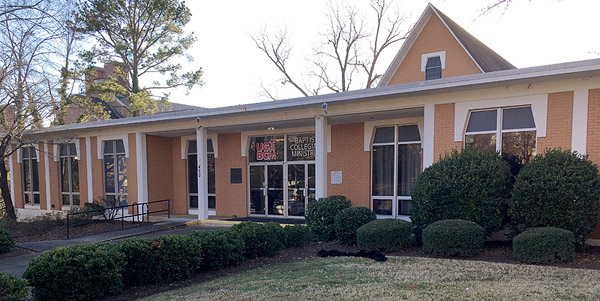
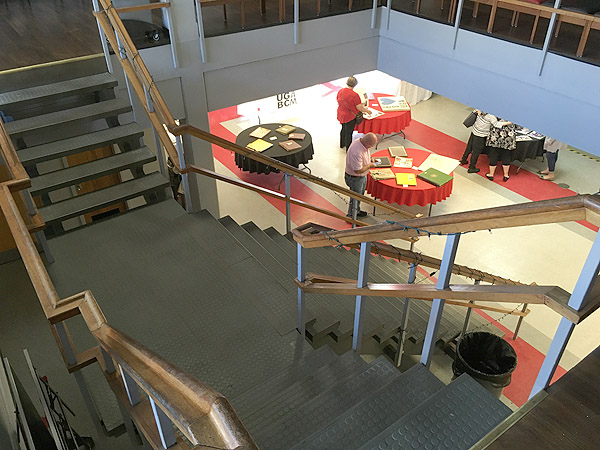
Last night I went to an alumni dinner to give the alumni one last look at the
Baptist Center
(whose significance I wrote about in 2015)
before it is torn down and rebuilt.
It was like going to a funeral.
That building holds many happy memories for thousands
of people.
Melody and I probably did more of our getting acquainted in that
building than anywhere else. Walking around, I found that every spot evoked memories
of whom I had met there, who had said or done what, and so forth.
At the same time, we understand that the building is worn out, used up, in bad
condition, and was never ideal for the needs of the ministry.
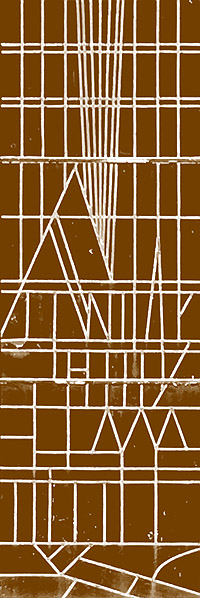 In the 1970s, the main purpose of the
Baptist campus ministry was to provide a better college experience
for students who were already solid Christians
(some of whom might not have been willing to go to a secular university without it).
It was a refuge from the "party school" culture, the drinking, drugs, and promiscuity.
Being able to hang around with people who shared our values was important,
especially when one wanted to meet people of the opposite sex.
The Sexual Revolution was going full steam ahead, but without the respect for
individual freedom of choice that later became customary.
Most of us didn't want to have to pick our way through that.
In fact, many of us met our spouses in the Baptist Center.
I didn't, but I got Melody there
within 8 hours after meeting her.
In the 1970s, the main purpose of the
Baptist campus ministry was to provide a better college experience
for students who were already solid Christians
(some of whom might not have been willing to go to a secular university without it).
It was a refuge from the "party school" culture, the drinking, drugs, and promiscuity.
Being able to hang around with people who shared our values was important,
especially when one wanted to meet people of the opposite sex.
The Sexual Revolution was going full steam ahead, but without the respect for
individual freedom of choice that later became customary.
Most of us didn't want to have to pick our way through that.
In fact, many of us met our spouses in the Baptist Center.
I didn't, but I got Melody there
within 8 hours after meeting her.
The campus was not a comfortable place to hang out — dorm lobbies in the 1970s were
primitive, and we didn't have the Tate Student Center — so the Baptist Center was
originally built a lot like a hotel lobby. There was an area with a TV; several rooms with chairs
and couches; and an indoor fountain. As well as, of course, a lunchroom, where lunch was
served daily, and a chapel, where services were often (not always) held around 9:30 on Sundays,
though this was not intended to replace local church membership.
Trivially, but adding to its physical comfort, the Baptist Center was also a refuge
from cigarette smoke. Smoking was permitted there but very rarely done. The only other smoke-free
places on campus were classrooms during class, and people were still griping about that
relatively new restriction.
The smoky indoor air of college was something we had not had to endure in high school and,
for many of us, a considerable source of discomfort.
In subsequent decades, the ministry became explicitly evangelistic and explicitly connected
with local churches.
This is something I had been agitating for as a student, and I was glad to see it.
College students need to decide for themselves that they are Christians and learn how
to be church members as adults.
The ministry also started reaching a much larger number of people and outgrew
its building.
In the 1980s and 1990s, almost every room was repurposed, and the decor and furnishings became
much plainer.
In the 1990s, the downstairs breezeway was enclosed and a northern wing added to make an
auditorium, not entirely satisfactorily.
The changes point up how the building was initially built (c. 1966) as an elegant
showpiece, not as sustainable as people had hoped.
At last night's dinner, about ten people from my era were present, and it was great to
see them. There were also dozens from other eras.
We heard about plans: a real estate investor will tear down the building
and build a multi-storey building consisting of car park, Baptist Center, and student
housing. The student housing will be leased to the University. Revenue sharing will greatly
benefit the ministry. But for two years, before that starts, the existing income stream
from renting out parking places will be gone. As a student organization, the
Baptist Student Union (which the ministry supports) will operate
out of rented space in the Tate Student Center.
The pictures: At the top you see alumni browsing through scrapbooks
kept by the Baptist Student Union each year.
(I want to digitize them.) At the right is a diagram-like rendering of part of the
chapel's stained-glass window, from a picture taken from the outside,
perspective-corrected, and flipped. The view of the window from inside is blocked
right now, but I hope I can go and photograph it properly after the chapel is cleared out,
before it is torn down.
Permanent link to this entry


|
2022
March
18
|
Snake in the house!

Where's St. Paddy when you need him?
Late on the evening of March 17, Sharon and I saw this handsome fellow slither
under a bookcase in the den. We unloaded and moved the bookcase with great
difficulty only to find that he had moved on. About an hour later, Melody saw
him nonchalantly slithering down the hall, and I caught him and put him outside.
Until he reappeared, we had decided it was OK to have him in our house because
he's non-poisonous and would eat spiders and bugs we'd like to be rid of.
Sharon actually put out a bowl of water for him, partly because we don't want
him to die of dehydration in an awkward place, and partly to encourage him to
stay in the same room.

Photo by Sharon Covington
He's apparently a DeKay's Brown Snake. He's about a foot long, no fatter than a
big pencil, and very mild-mannered.
Permanent link to this entry


|
2022
March
16
|
Year-round Daylight Saving Time?
The Senate has unanimously passed a bill to institute, nationwide, year-round
Daylight Saving Time in the states that currently observe it in the summer,
i.e., all except Arizona and Hawaii, starting in the fall of 2023.
We don't know whether the House will pass it.
I'd prefer year-round Standard Time, but even so, this is much better than
twice-yearly changes, which have been proven to be costly and hazardous.
I predict that most of the objections will come from states that are in the wrong
time zone.
A swath of states from Georgia to Michigan are more than 30 minutes ahead of the
sun even on Eastern Standard Time. They need to be on Central Standard Time as
befits their longitude. It's disingenuous for them to complain that
year-round Daylight Saving Time
is too much; they've already helped themselves to it!
And if the schoolchildren in Kalamazoo have to wait for the bus in the dark,
that's why. If they don't want to move into the correct time zone,
they might consider having school start later.
For specific data about sunrise and sunset in
various parts of the country at different times of year,
with and without DST,
click here.
Permanent link to this entry


|
2022
March
13
|
Moon (Mare Humorum)
Although mostly just adjusting equipment, I decided not to come back from the
hunt empty-handed, and so took this moonscape this evening.
The large round flat area is Mare Humorum, with the crater Gassendi at the top.
Look at the narrow rilles in various places, especially inside Gassendi.
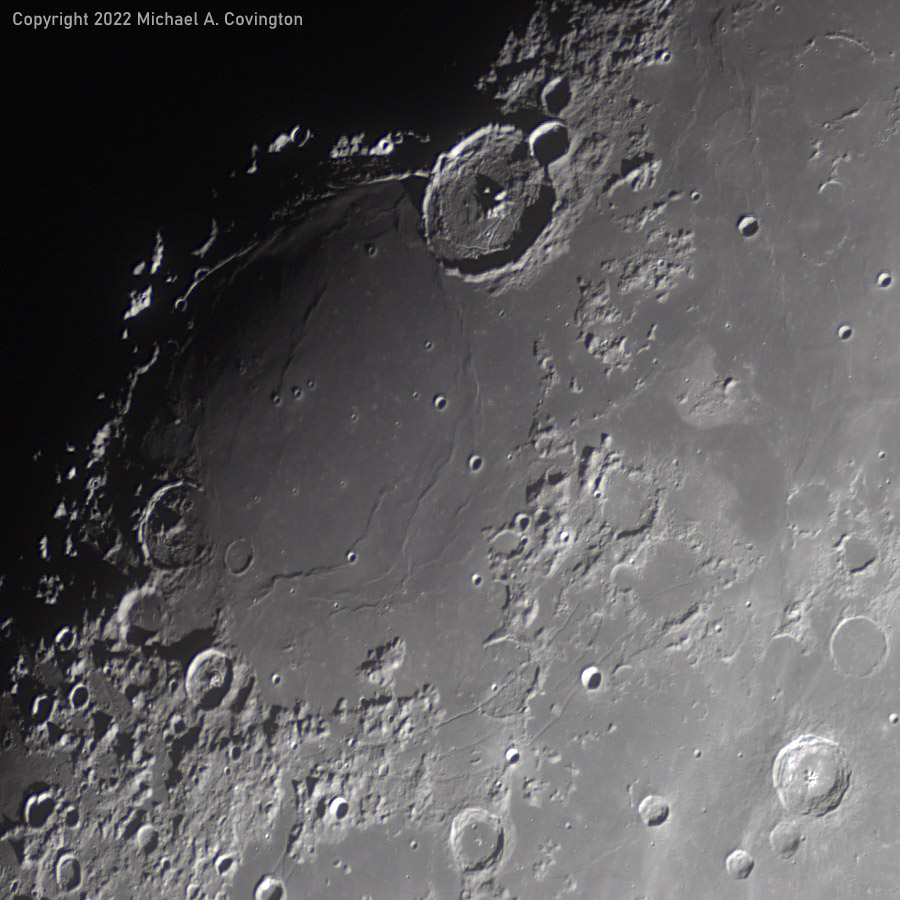
Celestron 8 EdgeHD, stack of the best 75% of about 3400 video frames, ASI120MC-S camera
at the f/10 Cassegrain focus.
Mare Humorum means "sea of humors" which in turn can mean anything from humidity
to bodily fluids. ("Being in a good humor" originally meant having your body chemistry
in good condition, in Renaissance-era medicine.) The moon is a very dry place, but the
Latin names of lunar features reflect an earlier era and, I think, a certain amount of
whimsy.
Permanent link to this entry


|
2022
March
11
|
More about "Morning Has Broken"
I've mentioned this piece of music
already,
but here's more of the story.
My favorite piece of Rick Wakeman's music may also be yours, but you may
not know that he did it.
Do you like
Cat Stevens'
"Morning Has Broken"?
His 1971 album made the world aware of this beautiful but little-known British hymn.
But until then, "Morning Has Broken" was a simpler song. The tune was just the notes that
go with the words. There was little elaboration.
What you now think of, when you think of "Morning Has Broken," includes all the piano
ornamentation...
...that was put in by Rick Wakeman, who was Stevens' accompanist.
According to Wikipedia, Stevens heard Wakeman practicing the beginning
of "Catherine Howard," in The Six Wives of Henry VIII,
and asked for an accompaniment in a similar style.
On the spot, Wakeman created most of what we now consider to be the
tune of "Morning Has Broken."
Reportedly, he wasn't properly credited or even paid for the performance
at the time.
Yet it is one of Wakeman's most enduring works, and he did get paid later.
Much later yet, he came out with
an instrumental piano performance
that puts the finishing touches on it.
The most striking thing about Rick Wakeman is his prolific output.
(I joke that he has made more records and CDs than himself.)
Another is that he doesn't claim to like everything he performed in.
He openly dislikes a third of it; I dislike three quarters of it; but
that leaves me plenty to enjoy.
He is clearly not trying to build a fan base that will buy everything
with his name on it.
He is a character. He is the only professing Christian
(with albums of hymns to his credit) who has performed as
part of Black Sabbath (not at the same stage of his career).
(And yes, Black Sabbath is as black as their name suggests.
They have several cover stories to give themselves plausible deniability,
but it seems clear they knew everything their name implied
when they adopted it.)
Permanent link to this entry
Two years
Two years ago was
America's last normal day.
I worked at the old FormFree office for the last time, went home,
and found the nation shutting down to try to nip COVID in the bud.
My concern then was that we would lose casual connections to people —
not people we know well enough to seek out socially,
but people we are accustomed to seeing casually at work or at school.
For shy people like Melody and me, this is a good bit of our contact with humanity,
and we want assurance that the rest of the human race exists and is reasonably stable.
I don't know how many people and familiar places from before COVID I will not see again.
We have been through five waves of pandemic since then, the last two almost
confined to unvaccinated people, at least as far as serious symptoms are
concerned. It looks like the United States is either out of the woods or
at least about to enjoy a break, but other parts of the world are not
so lucky.
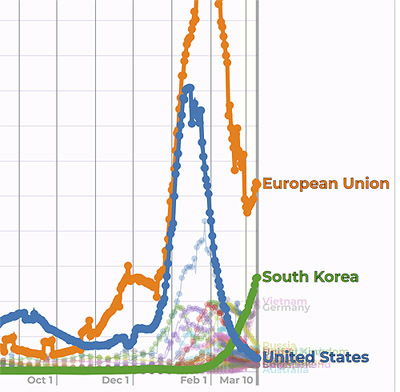
As life gets closer to normal, I am finding, as predicted, that it isn't
the same nation or the same life as before COVID.
People have lost connections and familiar habits and activities.
It will take time to rebuild them, and they won't be the same.
And we will face the conundrum of how much to limit our lives when
there's another wave.
Because we may have had our last COVID wave, and because of the fighting in
Ukraine, I will no longer use the words "war, "prewar," and "postwar" to refer
to the COVID pandemic as I have been doing. I do think it has been a national
experience similar to World War II, and I hope we're not about to have another one
even more like it.
I won't keep up a running commentary on Ukraine, but I will say one thing today.
Russia wasn't prepared for the new world of the Internet and fast communications.
A Russian military train approaches Ukraine, and people with cell phones snap pictures of it, and
in real time, ordinary people all over the world know it's there.
Someone in Ukraine reportedly downs a Russian drone by throwing a pickle jar at it —
nobody ever thought about how people would treat unwelcome drones.
The BBC, Facebook, and other media have established backchannels into the Russian Internet
through nonstandard protocols so they won't be blocked.
Modern technology is a powerful force for freedom.
Permanent link to this entry
An oddity of the French language
I've just learned that the French painter Millet (of "The Gleaners," etc.)
pronounced his name /mile/, as if it had only one L in the middle,
not /miye/ as the spelling leads us to expect.
That is, in French, it rhymes with filet, not billet.
I don't know why.
[Added:] Of course, clearly, the interited pronunciation /mile/ is genuine, and the
spelling is what is puzzling.
It turns out that in French spelling, ill is simply not consistent.
It is often /iy/ but sometimes /il/, as in village or million.
Names, of course, in all languages, often escape regularizations of spelling that
affect the rest of the language, or else his name might have
gotten respelled as Milet to make the pronunciation more evident.
And there are people, apparently related, who spell it Milet, Milay, and
several other ways. Etymologically, it appears to be an occupational
name for millet farmers.
Permanent link to this entry


|
2022
March
6
(Extra)
|
Astrophotography resumes: Monoceros
After a lot of cold and/or rainy weather, we suddenly had, last week,
four consecutive clear nights that weren't too cold.
I explored the constellation Monoceros using my Askar 200-mm f/4 lens,
Orion SkyGlow broadband filter (installed inside the lens),
Nikon D5500 DSLR (H-alpha modified),
Svbony 30×120mm guidescope, ASI120MM-s guide camera, and
ThinkPad T490s computer running PHD2 for autoguiding.
As befits that long list of parts, the guiding was perfect.
On each of the four nights, from my driveway in Athens, Georgia,
I took a series of 2-minute exposures of a different star field
(though they overlap).
Monoceros is the blank area to the east of Orion. Although it lacks bright stars,
it has plenty of star clusters and nebulae. Let's start exploring.
These are big pictures for you to scroll through.
|
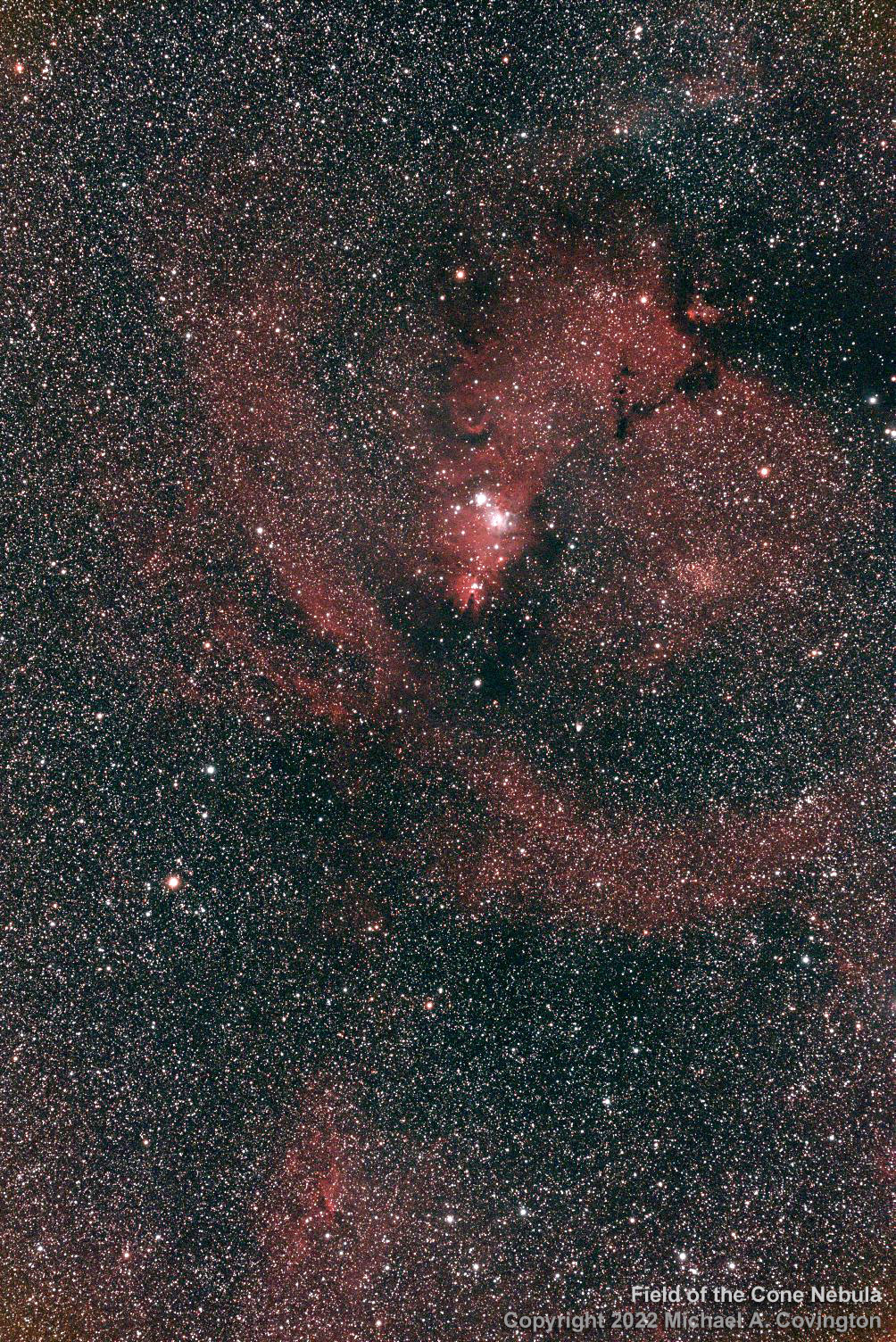
|
| |
This is a stack of 30 2-minute exposures. The bright objects just above center are the Cone Nebula
(a black cone intruding into the bottom of the red patch) and, above it, the
Christmas Tree Cluster. Below it is a bright star, and to the right of it, another object
that looks like a comet-shaped star; it is actually Hubble's Variable Nebula, illuminated
by a star that varies in brightness.
From the Cone Nebula go toward the upper right halfway to the corner of the picture,
and you'll traverse a large area of red hydrogen-alpha nebulosity, at whose upper right edge
is a red patch, the
uncatalogued nebula
that caught my eye a few years ago;
it is the visual counterpart of the radio source GAL201.6+01.6.
In fact, it is not totally uncatalogued as a visible nebula;
it's apparently LBN 902,
although LBN positions and descriptions are somewhat imprecise.
If I were actually retired I'd spend two or three weeks revising the LBN catalogue and produce
something useful to astronomers both professional and amateur.
One day...
The next night I took aim at Lower's Nebula, discovered by amateur astrophotographers
in 1939. This is a stack of 26 2-minute exposures.
|
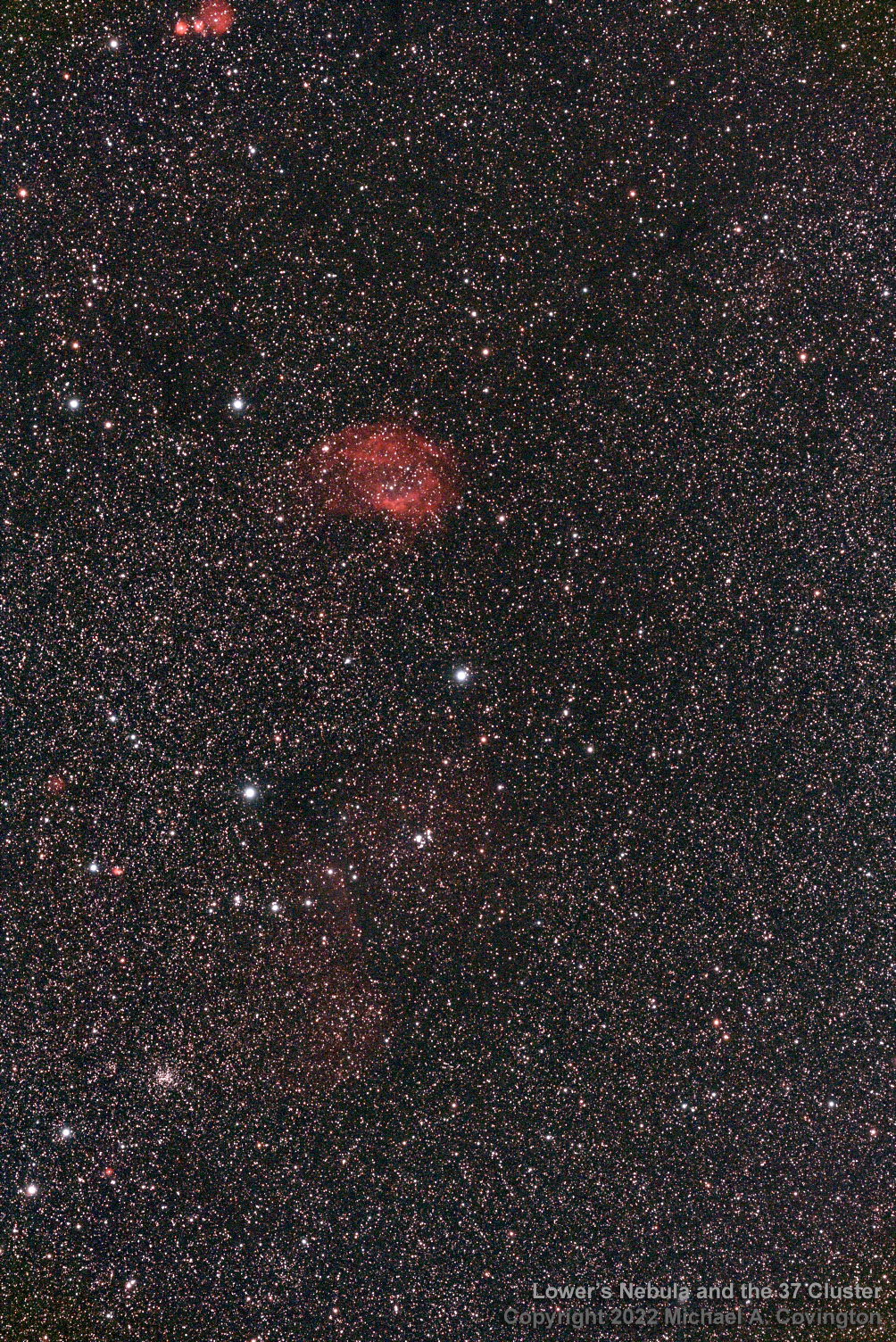
|
| |
Lower's Nebula is the big patch just above center. Below center, you see a tiny star cluster
that looks like the number 37. That is the "37 cluster," NGC 2169, and it really does look like
the number. Here's an enlarged portion of the following night's picture:

Now the whole picture from the third night. This also highlights Lower's Nebula but is framed
differently so that you can also see the IC 2162 complex, bright red nebulae that were at the
top edge of the second big picture. Stack of 34 2-minute exposures:
|
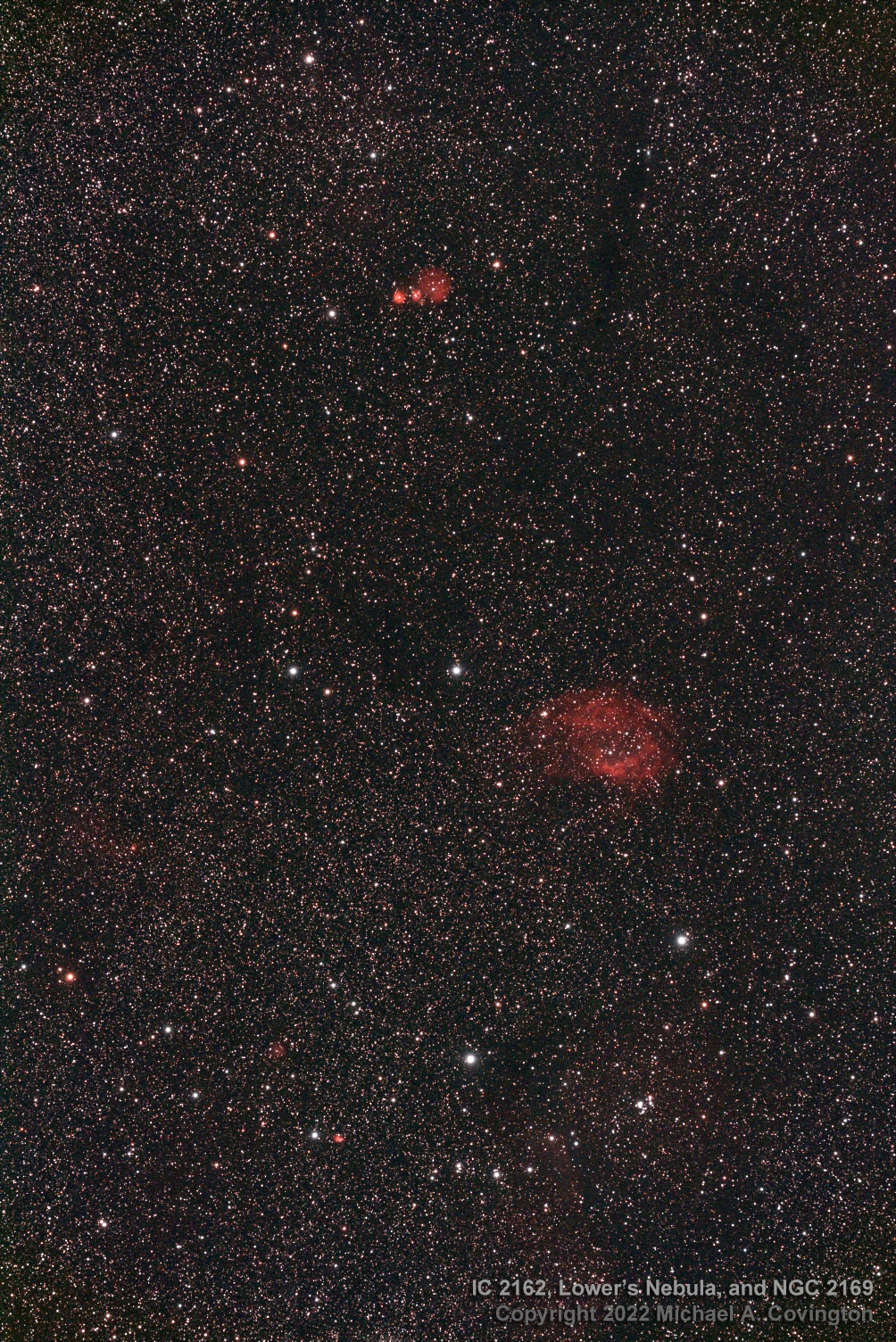
|
| |
For the fourth night I went back to the Christmas Tree Cluster and framed the picture so that it goes all
the way from that, in the upper left, to the Rosette Nebula at bottom, and also takes in the
IC 2169 complex at the upper right — gray rather than red, and obviously a cloud of dust,
not hydrogen. The catalog description and position of IC 2169 do not seem to match the actual object
as accurately as they ought to. Monoceros is inadequately explored!
|
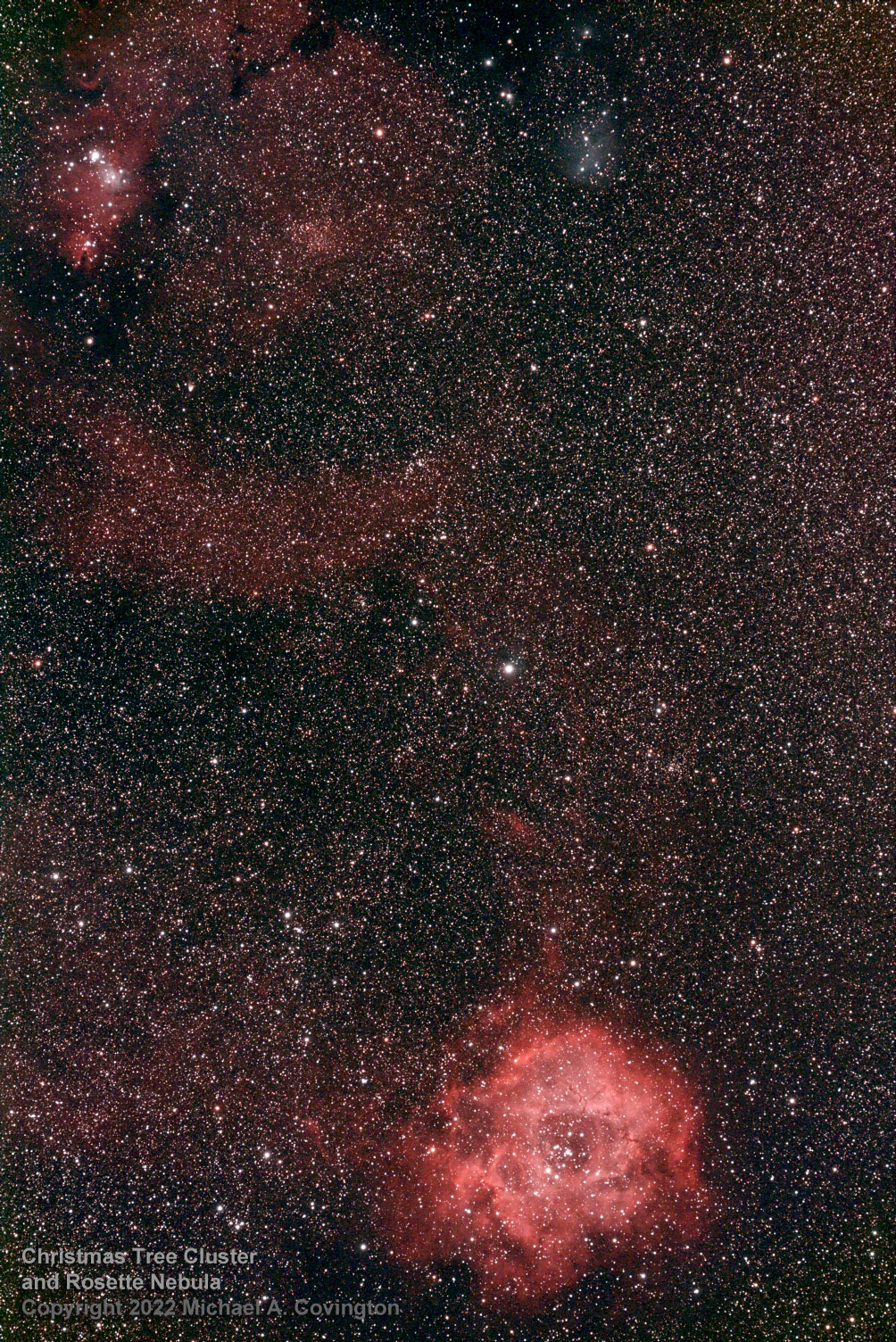
|
| |
Why are there different numbers of exposures on different nights?
Ordinarily, the answer would be that some were imperfectly guided and were thrown out.
But not with this small lens on a fine mount (iOptron GEM45).
The answer in this case is that I set the timer for 40 exposures each time,
but stopped when the star field went down behind the trees!
Permanent link to this entry


|
2022
March
6
|
News roundup
The Daily Notebook hasn't ceased operations, I've just been too busy (for two weeks!)
to write anything. Let me catch up now with some news of recent developments.
Post-COVID frenzy:
As normal life resumes after the latest COVID spike, we find everything happening at a frenzied
pace — people contacting us and wanting to do things — and our word to all is,
don't worry, we'll get to it, we can't do everything at once.
Melody and I have resumed getting out of the house together for shopping and even the occasional
dinner date. We're still being cautious because (as I said) you don't stop fighting a fire
when it's 95% or 98% out.
Baptist Center to be torn down and rebuilt:
I've written about how
important the University of Georgia
Baptist Center (now known as BCM) was to Melody and me
(and thousands of other students).
Now comes news that it's going to be torn down this summer,
the ministry will operate without a building for two years, and a new
building will be built in its place.
This came as a shock, but on consideration we can understand it. The current building is in poor
condition (like many 1960s buildings) and lacks a large, versatile auditorium, which is the biggest
physical thing the ministry needs. The chapel is awkward to use for anything other than church services
(which are not held there) and isn't big enough for big meetings;
we were filling it up when the University was two thirds
its present size.
The reason there are no church services in the chapel is that the Baptist Center was not intended to
substitute for participation in a local church — although, architecturally, it certainly looked
like it was, and in the 1970s Sunday services were held there.
We will attend an alumni dinner there on March 19 and probably see the building for the last time,
unless I happen to drop in again before it's closed. A bittersweet occasion.
More Truist Bank disappointment:
Outgoing payments from my checking account that were scheduled through PC Banking while PC Banking
was still available, but dated to go out after the changeover, were not made.
This caused 2 of my bill payments to be late, although fortunately I happened to detect the problem promptly.
A lot of people must have been affected by this.
We were told until a late stage that PC Banking (or rather Direct Connect), which allows software such as
Quicken to schedule payments, was going to be preserved. Just a few days before the changeover, they told
us that it wouldn't.
On Friday, I called the bank to ask what was going on, and was told the wait time on the phone would
be about one hour. I drove to the bank branch, and the best I could do was get an appointment to come and
see them Tuesday. We'll see what happens.
In my case, I paid the bills by other means, and since they were relatively large, I now need assurance
that the lost payments will not pop up and be made at some later date.
Telephones under siege:
For much of last week, our home telephone line was getting a spam call about every 15 minutes all day long.
We turned off the ringers, and as a result, missed an urgent call about a family member going into the hospital.
We put out the word that our land line number (ending in 3) is unusable and is now voicemail only.
Then, over the weekend, the spam calls stopped as mysteriously as they started — too mysteriously.
It may be that Spectrum's spam-blocking feature was inoperative for a few days and then resumed operating.
But I also wonder about something else.
These calls didn't seem to be genuine advertisers; if we answered them, they never said anything.
I wonder if, in connection with the Ukraine conflict, there was a denial-of-service attack on our
telephone system in the form of spam calls from totally random, non-recurring fake Caller ID numbers,
and it has ended.
Or they may resume Monday morning. We'll see.
Coming: Lots of astrophotography (from an unprecedented series of 4 clear nights in a row)
and lots of interesting notes on music.
How did I get this old without listening to Rick Wakeman's The Six Wives of Henry VIII (1973)?
It's fine music and has been one of Melody's favorites since the 1970s.
Clearly, I need to hang out with her more.
Permanent link to this entry


|
|
|
This is a private web page,
not hosted or sponsored by the University of Georgia.
Copyright 2022 Michael A. Covington.
Caching by search engines is permitted.
To go to the latest entry every day, bookmark
http://www.covingtoninnovations.com/michael/blog/Default.asp
and if you get the previous month, tell your browser to refresh.
Portrait at top of page by Sharon Covington.
This web site has never collected personal information
and is not affected by GDPR.
Google Ads may use cookies to manage the rotation of ads,
but those cookies are not made available to Covington Innovations.
No personal information is collected or stored by Covington Innovations, and never has been.
This web site is based and served entirely in the United States.
In compliance with U.S. FTC guidelines,
I am glad to point out that unless explicitly
indicated, I do not receive substantial payments, free merchandise, or other remuneration
for reviewing or mentioning products on this web site.
Any remuneration valued at more than about $10 will always be mentioned here,
and in any case my writing about products and dealers is always truthful.
Reviewed
products are usually things I purchased for my own use, or occasionally items
lent to me briefly by manufacturers and described as such.
I am no longer an Amazon Associate, and links to Amazon
no longer pay me a commission for purchases,
even if they still have my code in them.
|
|







 In the 1970s, the main purpose of the
Baptist campus ministry was to provide a better college experience
for students who were already solid Christians
(some of whom might not have been willing to go to a secular university without it).
It was a refuge from the "party school" culture, the drinking, drugs, and promiscuity.
Being able to hang around with people who shared our values was important,
especially when one wanted to meet people of the opposite sex.
The Sexual Revolution was going full steam ahead, but without the respect for
individual freedom of choice that later became customary.
Most of us didn't want to have to pick our way through that.
In fact, many of us met our spouses in the Baptist Center.
I didn't, but I got Melody there
within 8 hours after meeting her.
In the 1970s, the main purpose of the
Baptist campus ministry was to provide a better college experience
for students who were already solid Christians
(some of whom might not have been willing to go to a secular university without it).
It was a refuge from the "party school" culture, the drinking, drugs, and promiscuity.
Being able to hang around with people who shared our values was important,
especially when one wanted to meet people of the opposite sex.
The Sexual Revolution was going full steam ahead, but without the respect for
individual freedom of choice that later became customary.
Most of us didn't want to have to pick our way through that.
In fact, many of us met our spouses in the Baptist Center.
I didn't, but I got Melody there
within 8 hours after meeting her.








